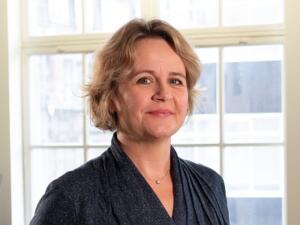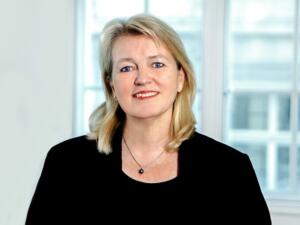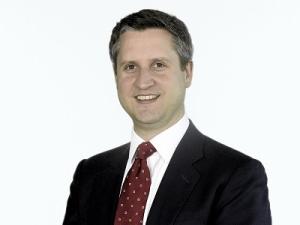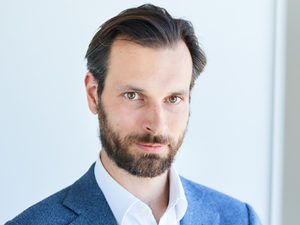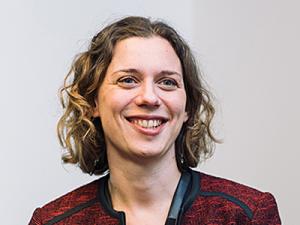Setback in UK after victory in Netherlands for Regeneron in Eylea case
Regeneron and Bayer have faced a defeat in the UK in their global dispute against several generic companies over their ophthalmic drug Eylea. The London High Court found the patents-in-suit not infringed and declared one patent invalid. The ruling comes after recent success in the German and Dutch courts.
10 October 2025 by Konstanze Richter
At the centre of proceedings in the UK and Netherlands are two of Regeneron’s patents from the same family. EP 2 364 691 and EP 2 944 306 cover formulations and a pre-filled syringe containing aflibercept.
The active ingredient inhibits vascular endothelial growth factor (VEGF), which causes excessive formation of blood vessels in the retina that impairs vision. It forms the basis of Regeneron’s drug Eylea, which generated global sales of $9.5 billion in 2024.
While no opposition against EP 691 was filed within the time frame, the EPO Opposition Division revoked EP 306 at the beginning of the year. An appeal is pending at the Boards of Appeal.
Formycon and Samsung Bioepis have each developed aflibercept biosimilars they plan to launch when the SPC for EP 1 183 353, the patent on aflibercept itself, expires in November 2025. Following recent successes in Germany and the Netherlands, Regeneron and its licensee Bayer have now lost in the UK.
Revocation actions
To clear the way for their products, Formycon and Samsung Bioepis launched nullity proceedings against EP 691 and EP 306 at the UK High Court. They challenged the patents on priority and added matter grounds. Regeneron and exclusive licensee Bayer responded with an infringement counterclaim for both patents. As in the recent German PI proceedings, they argued the biosimilars infringe by equivalence.
Judge Richard Meade found EP 306 not entitled to priority and thus invalid for added matter, while declaring EP 691 valid. However, the court rejected Regeneron’s equivalence infringement claims for both patents. According to the judge, Formycon’s and Samsung’s products do not have all the formulation features of the claims (case IDs: HP-2024-000015 and HP-2024-000036).
An action in the UK concerning the same patents but involving Amgen was discontinued before trial, according to JUVE Patent information.
Dutch victory
Parallel to the UK proceedings, Samsung Bioepis brought nullity suits against EP 691 and EP 306 including an Arrow declaration before the District Court The Hague. Samsung argued both patents were invalid due to added matter and lack of novelty. Regeneron again countered with an infringement claim.
However, the approach differed from other proceedings. While the German dispute focused on heavily claim 1 and the English case mainly on claim 5 of EP 691, the Dutch proceedings centred on claim 6. Regeneron argued Samsung Bioepis’ biosimilar falls within the scope of claim 6, but unlike in Germany and England, did not argue infringement by equivalence.
The judicial panel comprising F.M. Bus, Hugo van Heemstra and S. H. Verrips rejected the nullity suits against both patents and found Samsung Bioepis’ product Opuviz infringes claim 6 of EP 691. The court granted Regeneron an injunction for the Netherlands (case ID: C/09/675547 / HA ZA 24-972).
However, the court denied Regeneron’s request for a cross-border injunction. The patent holder had claimed Samsung Bioepis could make its European marketing authorisation for Opuviz available to third parties and sought a territorially unlimited injunction against the Korean biosimilar producer, excluding Germany and the UK.
It is not yet known if either party will appeal the Dutch and British decisions. In Germany, Formycon has appealed.
Renowned teams at the fore
In both the UK and Netherlands cases, Samsung Bioepis instructed renowned teams from market-leading firms, namely Powell Gilbert and Brinkhof. London partners Zoë Butler and Penny Gilbert led the UK proceedings, alongside associates Callum Beamish-Lacey, Anna Matthew, Charlotte Malley and Gabriella Simon. Meanwhile, a team around lead partners Koen Bijvank and Mark van Gardingen from Brinkhof represented the Korean client in The Hague. Associates Barbara Mooij and Djamo van Lutterveld provided assistance, while patent attorney Atze van Stralen provided support in technical matters.
- Zoe Butler
- Penny Gilbert
- Koen Bijvank
Formycon and its distribution partner Klinge retained Pinsent Masons in London. Partner Christopher Sharp led the case, with support from associates Carissa Kendall-Windless, Natalie Coan, Alexis Keating, and Anna Samokhina. The team worked closely with in-house lawyer Stefan Peter from Formycon.
In the joint UK proceedings, barristers Charlotte May KC of 8 New Square, Tom Alkin of 11 South Square and Jeremy Heald of Three New Square represented the biosimilar producers.
Sources say an Osborne Clarke team led by litigator Trevor Crosse advised Amgen during its initial involvement.
Hoyng ROKH for Regeneron
For the pan-European litigation, Bayer and Regeneron relied on Hoyng ROKH Monegier, which coordinated cross-border work with firms including A&O Shearman, who led in the UK. Hoyng ROKH Monegier has a long-standing relationship with Regeneron, while A&O Shearman represents Bayer in other matters such as Xarelto.
- Christopher Sharp
- Peter van Schijndel
- Bart van den Broek
Amsterdam-based partners Peter van Schijndel and Bart van den Broek of Hoyng ROKH Monegier led the Dutch proceedings, with support from Dirk Henderickx, Nathalie Rodriguez, Rosalie ten Wolde, and Alba Folgueiras Gonzalez. In the UK, partners Marjan Noor and Gemma Barrett headed the team, working with associates Tom Edwards, Ben Norman, Aisha Gbadamosi, and Harry O’Donohue.
- Gemma Barrett
- Adrian Speck
- Stephen Duffield
Barristers Adrian Speck KC, Isabel Jamal, William Duncan of 8 New Square and Alice Hart of Three New Square pleaded the case for the patent holder at the High Court. While Hoyng ROKH Monegier relied on its own patent attorneys, Carpmaels & Ransford advised on patent amendments and technical issues in the UK proceedings. The Carpmaels team included Stephen Duffield, David Wilson and associate Lileth Rees. Duffield and Wilson also advise Regeneron concerning multiple other Eylea patents, along with Daniel Wise, Agathe Michel-de Cazotte, Harvey Adams and senior associates Emily Nikolic and Alexander Wilson.
The oppositions against EP 306 at the EPO were conducted in the first instance by the patent law firms Wuesthoff & Wuesthof, df-mp and Boult Wade Tennant as straw men. The representation of patent owner Regeneron was initially in the hands of Hoffmann Eitle. In April 2024, a team from König Szynka Tilmann von Renesse took over representation. After the patent law firm dissolved in the summer of 2025 and several partners moved to Hoffmann Eitle, the client is once again in the hands of the latter.
